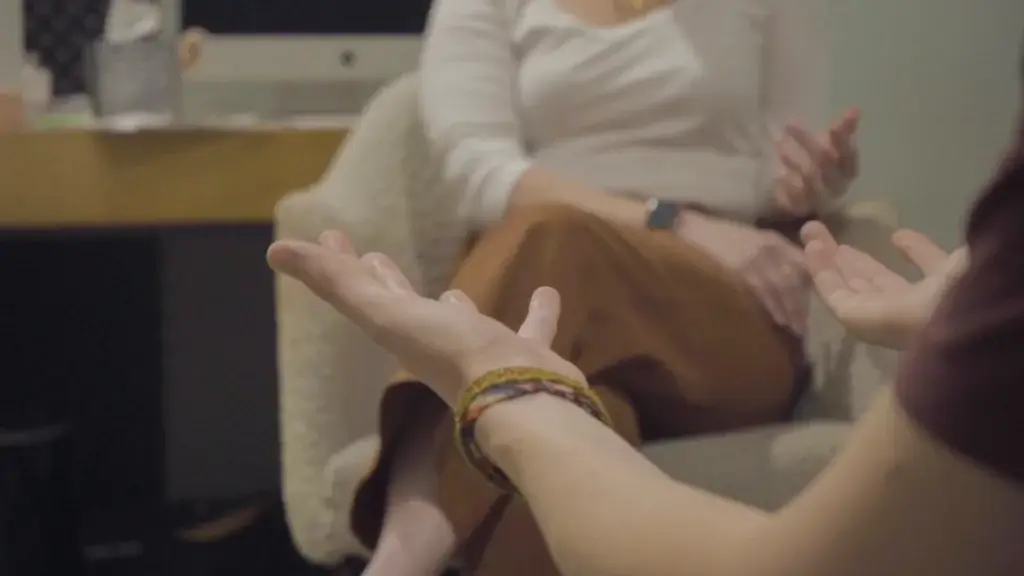Almost everyone at different points in life asks, “Why is life so hard?” Stress, anxiety, depression, and subconscious fears can make it difficult to take on challenges, grow beyond our comfort zones, and focus or pursue goals.
For some, these obstacles are easy to overcome, and once they write down a checklist or stick to a plan, it can be easy to move on and forget your initial worries. Unfortunately, this isn’t the case for everyone. 1 in 3 adults in the US has a substance use disorder or mental health disorder, and for them, life can feel much worse than others.
This short blog answers “Why is life so hard” by breaking down some of the most common challenges faced by individuals with mental health disorders, substance use disorders, or dual diagnosis. We also include some great ways to find balance living with a mental health disorder and how to make it through sobriety, even if you relapse.
Why Is Life So Hard?
The challenges of “life” are usually obstacles that negatively impact our own lives, even if hundreds or thousands of people face the same issues. It helps to know you’re not alone and others have faced, pushed through, and overcome your current situation, but it can be hard to step back from our stress and anxiety and look at it from another perspective, especially when it bleeds into the rest of our life.
Challenges with work-life balance
The World Health Organization estimates that depression and anxiety cost the global economy 12 billion working days and 1 trillion dollars each year. The answer to the question seems to be “more work” or “more structure,” but in truth, work can directly worsen an individual’s mental health, even though most work-related mental health conditions are preventable.
One Rutgers study found that more than 11 million people have serious mental health disorders, such as major depressive disorder, bipolar disorder, anxiety, and schizophrenia, and up to 90% of them are unemployed. This doesn’t mean they can’t function, create, or obtain skills; rather, it’s extremely difficult to balance their mental health with societal expectations.
Chronic unemployment is a downward spiral, and without a steady income, anxiety, depression, and stress can feel unendingly painful. Coming to terms with a mental health disorder and adapting your life around it isn’t easy and usually isn’t done overnight.

Challenges with social life
The COVID-19 pandemic has profoundly impacted mental health worldwide, with a staggering 25% increase in symptoms of anxiety and depression observed globally. Unfortunately, individuals who lacked strong social connections or support systems found themselves even more isolated due to the pandemic and subsequent lockdown measures. Job losses and isolation could have pushed them towards harmful coping mechanisms like substance abuse.
Cannabis is legalized in some form in almost half of US states, and it seems to be the easiest time to pick up a substance and spend a lonely afternoon high or hallucinating. Since COVID-19 started, there has been a 23% rise in alcohol abuse and a 16% increase in drug abuse among individuals who used substances before the pandemic. Furthermore, people who self-isolated reported consuming 26% more alcohol or drugs than they typically would to cope with the situation.
It can be easy to fall into new coping mechanisms as long as they distract us, even if they’re unhealthy. Addictions can be easy to pick up, and mental health issues can be easy to ignore, but once the financial, physical, and emotional costs start adding up, life doesn’t seem any better.
Challenges with self-care
Some individuals can view self-care from a very black-and-white perspective, possibly seeing it as “selfish” or feeling as if they don’t have any time for it. Once someone is used to denying and ignoring their own mental health needs, it becomes easy to forget what makes you happy or feel pleasure.
People with mental health conditions may struggle to prioritize their physical health. It can be tough for them to seek medical care, adhere to prescribed medications consistently, or exercise regularly. Self-care, on a large scale, like switching to a healthier diet or going to the gym every day, can overwhelm individuals almost immediately, especially those with ADHD, bipolar disorder, PTSD, and other mental health disorders that disrupt our moods and focus.
Life can feel hard because of outside stressors, but most negative emotions and feelings come from within, and it’s important to take care of yourself. If the gym or yoga studio isn’t for you, try going for a walk alone or with a loved one. Get out of the house and grab a coffee if you need something to motivate you. A simple coffee run can turn into a stroll downtown or near a park. Of course, we want life to become easier for everyone, but you have to start small. And you should start by making life less hard for you.

Life With A Mental Health Disorder
Almost all US adults believe the country is facing a mental health crisis. In a broad and economic sense, more insurance plans are covering mental health services like therapy, medication, and inpatient and outpatient treatment. But these services aren’t as easy to access for everyone. We encourage you to talk to a therapist or look into your mental health challenges to see if your symptoms align with a disorder. In the meantime, here are three things you can do if you’re struggling with mental health issues.
- Identify your symptoms: If you haven’t been clinically diagnosed with a mental health disorder but think you’re spotting some symptoms, research as much as you can. As mentioned earlier, financial situations can heavily impact our ability to accept and address mental health disorders. But the internet is free, and organizations like Mental Health America and Launch Centers have online mental health assessment tests. These tests won’t diagnose you, but they certainly get you on the right path.
- Accept living with it: Living with an undiagnosed mental health disorder is one of the hardest things people can face. The other hardest thing is denying or ignoring symptoms or a diagnosis. It can be scary, but accepting a mental health disorder brings you one step closer to overcoming the challenges it’s bringing. We may look at others and wonder how they can get through life or appear so happy. But in some instances, these individuals have accepted their lives and know how to move through while attentively listening to their needs.
- Find community: Even though it feels lonely, you’re probably not the only person with a specific mental health disorder. There are in-person and online communities and support groups dedicated to exploring different ways of dealing with symptoms, triggers, and tics. There are hundreds of social media pages, videos, and short clips of people like you talking about how they adapt to their disorder, but most importantly, how they listen to their minds and bodies.
- Identify triggers and unhealthy habits: When life feels hard, it can be easy to pick up anything that makes us feel better, even if it’s temporary. This includes legal and illicit substances like alcohol, cannabis, and cocaine and trending drugs like ketamine or fentanyl. But these unhealthy coping mechanisms don’t last long, and their chemical and addictive components turn a distraction into a dependence.
Read more: What To Do If You’re Mentally Checked Out

Life After Addiction
Drug use can consume everything in our lives, from how many hours of sleep we get at night to how we talk to family or friends. Substance abuse can make life extremely hard, but once someone goes through detox and addiction treatment, the recovery process can feel much worse than before. But this too shall pass, and you don’t need to go through addiction recovery alone or without any resources. Here are key ways to build and support long-term recovery goals.
- Embrace sobriety: Sobriety may seem far off in the future or too challenging to even attempt for many individuals. Once someone has gone through detox and made it past physical obstacles like withdrawal symptoms, staying sober can seem less important than just leaving the rehab center. Embracing sobriety helps create a new perspective that what you’re trying to accomplish isn’t out of reach, and healthy coping skills require patience and practice.
- Don’t stress about relapsing: Unfortunately, addiction isn’t something you can move on from on the first day. Some studies indicate that up to 60% of individuals in addiction treatment will relapse. But this isn’t an indication of failure or that all is lost. You can call it attempt number one, which shows that you made an effort to try. Treating yourself with gentle kindness and staying positive are two of the biggest support factors for successful treatment and recovery.
- Look for new hobbies: Without substances, life can seem to have gotten less fun. But this is a chemical response to your brain without drugs. THC and opioids affect your dopamine and make you feel good once you use them. But soon, your body can become reliant and won’t produce enough dopamine to make you feel good without them. These mental withdrawal symptoms will disappear, but you can support yourself by picking up new hobbies or interests.
- Focus on healthy relationships: Sometimes, the people in your life before and during addiction can be the foundation for your new social life. If you’ve cut off old friends who pressured or encouraged you to use drugs or drink unhealthy amounts of alcohol, your social circle may have diminished. But if you have even just one friend or relative who stuck by your side or expressed interest in your well-being, reach out to them. By focusing on healthy relationships, you can build strong support systems that motivate and encourage you during sobriety and the challenges of everyday life.
Read more: Breaking Negative Thinking & Self-Talk

Professional Treatment: A Helping Hand
It’s okay to ask for help, and plenty of treatment programs and organizations can help you reach your goals. Mental health disorders affect everything from social skills, to career growth, daily life responsibilities, and more. Tackling everything at once can cause individuals to easily feel overwhelmed. With the support of professional therapists and counselors, mental health and substance abuse treatment is easier to manage and focus on.
Therapy methods like cognitive behavioral therapy focus on our outlooks on life, those around us, and ourselves, challenging any negative distortions that limit our ability to succeed. Other modalities like trauma-informed care and emotion-focused therapy explore our pasts and feelings and how they relate to substance abuse and mental health. Most treatment plans are tailored to your specific needs, so you can focus and truly feel like your meeting your needs and goals.

Contact Launch Centers
If you or someone you know is struggling with a mental health disorder or substance use disorder, contact Launch Centers in Los Angeles, California. Our addiction treatment program focuses on helping young adults overcome mental health and addiction challenges through evidence-based and holistic healing methods. We focus on all aspects of the individual and offer various treatment options, including PHP, IOP, and life and skills development programs. Call today, and one of our admissions agents can help you get started.





